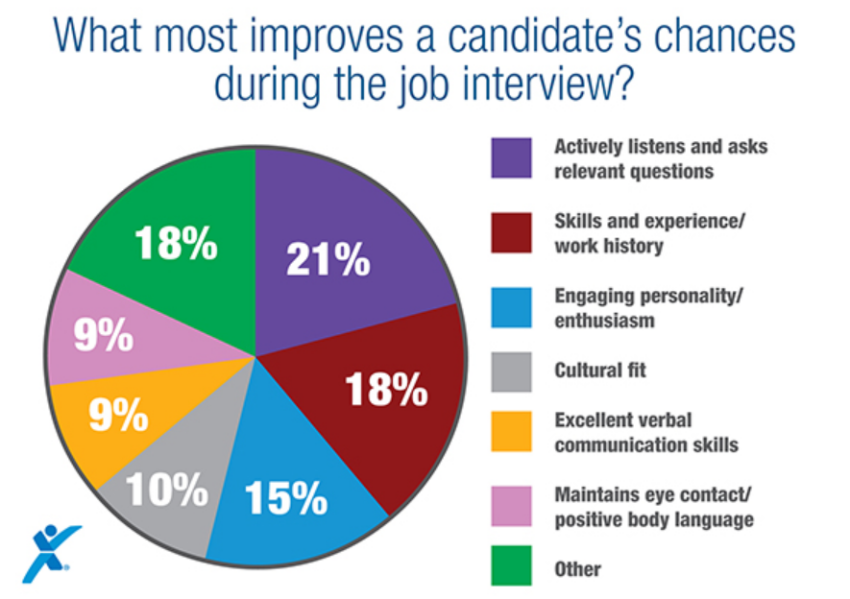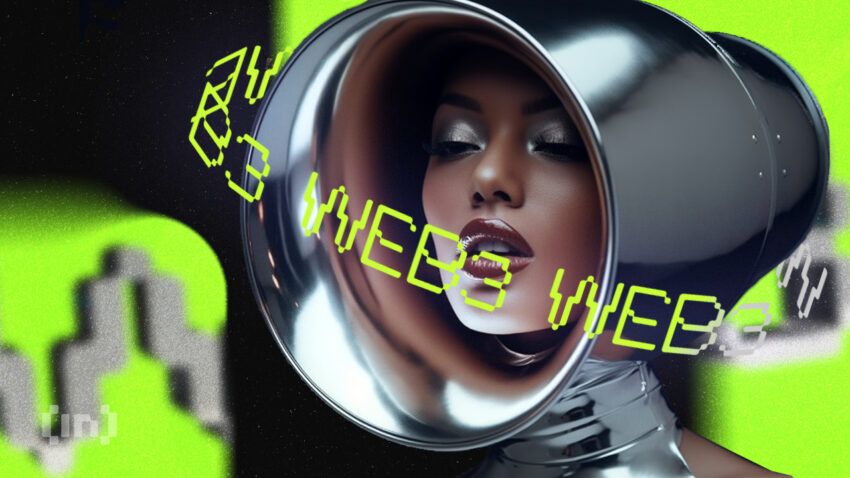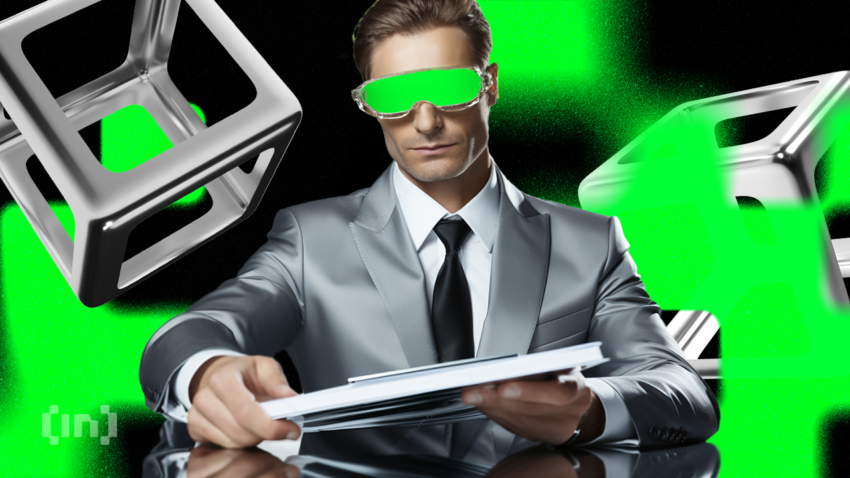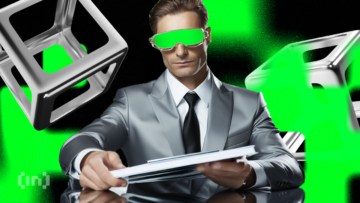To excel in your web3 interview, you need a well-rounded strategy encompassing research, technical skills, problem-solving abilities, and effective communication. We’ve worked on a step-by-step guide so you can finally land your dream crypto job. Without further ado, let’s dive in.
In this guide:
Traditional job interview vs. web3 interview
Preparing for a traditional job interview and a web3 interview differ in several ways. Going to a web3 interview demands a deeper technical understanding of blockchain technology and industry-specific knowledge than a traditional job interview might. For instance, traditional job interviews often focus on a candidate’s qualifications, experience, and general skills applicable to the specific job role. Technical knowledge is usually relevant only if the job requires specific technical skills.
Additionally, a traditional job interview focuses primarily on the specific industry and job role. Questions may revolve around trends, competitors, and market dynamics. Conversely, web3 interviews typically require a deeper understanding of blockchain technology, cryptocurrencies, decentralized applications (DApps), smart contracts, and related protocols.

Candidates may be asked complex technical questions about blockchain, tokenomics, and cryptography, as well as industry-specific topics such as decentralized finance (DeFi), non-fungible tokens (NFTs), and decentralized autonomous organizations (DAOs).
Say Goodbye to Post-Interview Rejections!
Find your dream job
Preparing for a web3 interview
A web3 interview isn’t just about showcasing your skills; it’s about demonstrating your deep understanding of the complexities of the decentralized ecosystems — that’s what matters to most recruiters and hiring managers.
Research the company
Before you walk into the interview room, make sure you’ve done your homework on the company. Understanding goals, projects, and culture will demonstrate your genuine interest and make a positive impression.
Social media, especially Twitter and LinkedIn, serve as valuable resources for staying informed about the latest developments in the web3 and crypto sectors. Many web3 companies share announcements regarding partnerships, product launches, or updates to their roadmap on social channels.
Mastering web3 skills: Blockchain and crypto fundamentals
For tech professionals, ensure you have a solid foundation in crypto, blockchain networks, and web3 protocols. A deep understanding of core concepts is crucial, especially when responding to technical questions.
Additionally, invest time in honing your programming skills, particularly in languages like Solidity, Rust, and JavaScript. These languages are commonly used in web3 development, and proficiency in them will strengthen your arsenal of skills.
Non-tech job seekers in HR, marketing, and other departments venturing into the web3 industry should focus on building a foundational understanding of blockchain technology while staying informed about the broader web3 ecosystem. Arina Koganelok, HRD at BeInCrypto, shares:
“One of the key factors in landing a job at a crypto company is to be aware of the main industry trends and news. Become the person about whom others can say “deep in crypto.”
Arina Koganelok, HRD at BeInCrypto
Crafting your elevator pitch

Hiring managers and recruiters interview many candidates weekly, if not daily. Crafting a captivating elevator pitch can be your secret weapon if you want to stand out and make a memorable first impression.
Your elevator pitch is a brief introduction and a carefully constructed narrative that succinctly communicates your unique value to potential employers. Start by highlighting your skills, drawing attention to both technical and non-technical abilities that make you a versatile candidate. Emphasize your experience, bringing a compelling story of your journey and how it has uniquely prepared you for the web3 space.
But don’t stop there. Infuse your pitch with a deep passion for web3 technology, weaving in humor, anecdotes, and real-life examples that highlight your intrigue with decentralized systems and blockchain innovations.
- Here’s an example of an elevator pitch for a marketer with a pitch deck during a web3 interview:
“Hello, I’m [your name], and I’m thrilled to be here today. I’m a seasoned marketer passionate about leveraging web3 technology to drive innovative and impactful campaigns. Over the years, I’ve honed my skills in traditional marketing, and now I’m excited to transition them into the dynamic world of web3.
I’ve had the privilege of working on diverse projects, from promoting blockchain-based startups to leading successful token launch campaigns. My experience in building and engaging communities using decentralized applications has given me unique insights into Web3 user behavior and trends.
But what sets me apart is my unwavering enthusiasm for the potential of blockchain and decentralized systems to reshape industries. I’ve created a pitch deck that outlines my vision for how our company can harness web3 technology to transform our marketing strategies. In this deck, you’ll find concrete examples of how I’ve used NFTs to enhance customer loyalty and blockchain-based smart contracts to drive transparency in marketing partnerships.
I aim to help bridge the gap between our brand and the Web3 community, using my skills in digital marketing, data analytics, and a deep understanding of blockchain fundamentals. I’m excited about the opportunity to discuss how I can contribute to our company’s success in this exciting web3 era. Thank you for considering me as a potential member of your team.”
[At this point, you could present your pitch deck to visually support and expand on your elevator pitch, highlighting specific examples, data, and visuals that reinforce your message].
Common web3 interview questions
Working on a list of web3 common interview questions strongly indicates your enthusiasm for the company and the specific position you seek. It also prepares you for what might come your way.
Technical questions you may face
Here are some examples of technical questions:
- Can you explain the process of developing a smart contract, from initial code creation to deployment? What are some best practices for ensuring the security and reliability of smart contracts?
- Could you provide an overview of different consensus algorithms used in blockchain networks? How does proof-of-work (PoW) differ from proof-of-stake (PoS), and what are the advantages and disadvantages of each?
- In the context of blockchain projects, what is tokenomics, and why is it important? Can you discuss the key factors that influence a token’s value and how token economics can impact the success of a decentralized application?
- What are the main security challenges and vulnerabilities in blockchain technology? How can developers mitigate the risk of common threats like double-spending, 51% attacks, and smart contract vulnerabilities?
- In the web3 ecosystem, interoperability between different blockchain networks is a crucial consideration. Can you explain the concept of cross-chain interoperability and discuss some protocols or technologies used to achieve it?
Problem-solving scenarios
Practice tackling tangible challenges in web3 development, using both critical thinking and creativity. Demonstrating proficiency in these areas not only highlights your problem-solving prowess but also showcases essential hard and soft skills desired for a web3 career.
Problem-solving scenarios for hard skills:
- Imagine you’re auditing a smart contract for a DeFi project, and you discover a potential vulnerability. How would you identify the issue, assess its impact, and propose a solution to ensure the contract’s security?
- Suppose you’re part of a blockchain network that is under the threat of a 51% attack. How would you mitigate the attack and ensure the network’s continued security and integrity?
- You are tasked with scaling a decentralized application (DApp) to accommodate a rapidly growing user base. What strategies and technologies would you employ to handle increased traffic while maintaining the DApp’s efficiency and decentralization?
- A project aims to achieve cross-chain compatibility between Ethereum and Polkadot. How would you architect and implement a solution to facilitate seamless asset transfer and data exchange between these two distinct blockchain ecosystems?
- In the event of a contentious hard fork in a blockchain network you’re working on, how would you address the challenges it poses to the community and ecosystem stakeholders? What steps would you take to minimize disruption and ensure consensus moving forward?
Behavioral, ethical, and soft skills problem-solving questions:
- Imagine a scenario where there is a disagreement within your web3 development team regarding the direction of a project. How would you approach mediating the conflict and fostering collaboration to ensure the project’s success?
- You come across evidence of potential unethical behavior within your organization related to using blockchain technology. How would you handle this situation, ensuring transparency, accountability, and adherence to ethical standards?
- In the rapidly evolving web3 industry, projects often encounter unforeseen challenges and changes in direction. Can you describe a situation where you had to adapt to a significant change in project scope or strategy, and how did you navigate it?
- Suppose you join a new web3 project team, and there are evident communication issues and a lack of cohesion among team members. What steps would you take to build a collaborative and productive team environment?
- You’re responsible for managing client relationships for a web3 consulting firm. One of your clients expressed dissatisfaction with the project’s progress. How would you address their concerns, rebuild trust, and ensure client satisfaction?
Industry-specific questions

Anticipate questions specific to the web3 industry, such as DeFi trends, NFTs, cross-chain interoperability, and decentralized applications (DApps). Here are some examples:
- With the rapid growth of decentralized finance (DeFi), what key trends or challenges do you foresee in the DeFi space, and how would you address them in your role?
- Non-fungible tokens (NFTs) have gained significant attention recently. Can you share your insights into the various real-world applications of NFTs beyond digital art and how these might impact our industry?
- Decentralized autonomous organizations (DAOs) are becoming integral to web3 projects. How do you envision the role of decentralized governance models evolving, and what factors should organizations consider when implementing them?
- While web3 technology holds immense potential, it also faces adoption barriers. How would you strategize to overcome these challenges and drive mainstream adoption of web3 solutions and applications?
- Bitcoin has often been compared to “digital gold.” Can you elaborate on the similarities and differences between bitcoin and traditional gold as stores of value? How do you see bitcoin’s role evolving in the global financial landscape?
Demonstrating your skills

Your web3 interview isn’t just an opportunity to discuss your qualifications; it’s a chance to showcase your abilities and experiences in action, mainly because crypto and web3 companies truly appreciate proactive and result-oriented professionals. Koganelok explains:
“The crypto market is expanding rapidly, and as a result, there is a need for more specialized professionals in the industry. Many companies are willing to take a chance on candidates who have yet to gain experience in the field.
Additionally, many crypto companies place a high value on candidates with a strong understanding of the technology and a passion for the industry, regardless of their crypto experience.”
Arina Koganelok, HRD at BeInCrypto
Showcasing your projects
Highlighting your web3 projects, whether personal or professional, is an opportunity to demonstrate your skills and experience in a tangible way.
While presenting your projects, you can describe the challenges encountered and how you solved them. Be specific about the technical, logistical, or conceptual obstacles you faced. This not only demonstrates your ability to identify and address issues but also sets the stage for highlighting your problem-solving skills.
To top it off, you can discuss the results of your project. Quantify your achievements whenever possible. Did you improve efficiency, manage data well, enhance security, or drive user engagement? Highlight the impact your project had on the organization or community.
- Pro tip!
An illustration of how you can showcase your project:
- DeFi revolution:
- “One of my most notable web3 projects was my involvement in pioneering a decentralized finance (DeFi) application aimed at redefining lending and borrowing. The challenge? Striking the right balance between transparency and privacy. To tackle this, I orchestrated a multi-layered privacy solution, leveraging zero-knowledge proofs and advanced encryption techniques. This not only safeguarded user data but also contributed to the project’s success by ensuring that it complied with evolving privacy regulations.”
- NFT artistry unleashed:“Venturing into the world of non-fungible tokens (NFTs), I embarked on a project to empower artists and creators through tokenization. A major challenge was ensuring the legitimacy of digital artworks and addressing environmental concerns related to blockchain mining. Our answer? Implementing a proof-of-stake (PoS) consensus mechanism and collaborating with eco-conscious blockchain networks. This not only bolstered the platform’s credibility but also aligned with our commitment to sustainability in the web3 era.”
Explaining your contributions
When discussing your contributions to a web3 project, make sure to emphasize your ownership and leadership. You can also check the skills required for job opportunities in web3 and mention if this was something you had to use throughout your project.
If your contributions were technical, describe the specific tasks you undertook, emphasizing the impact of your coding, development, or design work. Highlight any contribution that makes sense for that, using concrete examples. Wrap up by mentioning the lessons learned from your contributions, whether as an individual or within a company.
Post web3 interview strategies
A post-interview approach can leave a lasting and positive impression on your potential employer that goes beyond showcasing your background and skills. Here are a few:
- Following up effectively: After your interview, try to personally message the interviewer with a thank-you note and a brief reinforcement of your interest and excitement for the job. While expressing your continued interest is a good idea, avoid excessive or aggressive follow-up.
- Lessons learned: Putting in effort and going the extra mile for a job vacancy won’t guarantee you will for sure land the job. Sometimes, there will be a “no,” which can be disheartening. However, it’s also an opportunity for personal and professional growth.
- Continuous learning and upskilling: Consistently learning and staying updated with the latest trends in new technology ensures that you remain at the forefront of the field.
- Online courses and tutorials: Take advantage of the vast amount of online content in web3 topics. Leverage online platforms like Coursera, Udemy, and edX to access courses and tutorials on blockchain, smart contracts, cryptography, etc.
- Read industry publications: Stay informed by reading industry-specific publications, blogs, and whitepapers.
- Participate in web3 communities: Join web3 and blockchain communities on platforms like Reddit, Discord, and Telegram. These communities can be valuable sources of information and networking opportunities.
- Attend webinars and conferences: Participate in webinars, virtual conferences, and meetups focused on web3 technology. These events often feature industry experts and thought leaders sharing their knowledge and experiences.
Practice makes perfect
Interviews aren’t easy, and you may not nail your first one. You will need to build resilience and view potential challenges as growth opportunities. Sharpen your elevator pitch, delve deep into common web3 interview questions, and showcase your blockchain proficiency through relevant projects. By adopting these approaches, you’re setting the stage for a successful interaction. Good luck!
Frequently asked questions
How do I prepare for a web3 interview?
What are web3 skills?
What is web3 for beginners?
Does web3 require coding?
Disclaimer
In line with the Trust Project guidelines, the educational content on this website is offered in good faith and for general information purposes only. BeInCrypto prioritizes providing high-quality information, taking the time to research and create informative content for readers. While partners may reward the company with commissions for placements in articles, these commissions do not influence the unbiased, honest, and helpful content creation process. Any action taken by the reader based on this information is strictly at their own risk. Please note that our Terms and Conditions, Privacy Policy, and Disclaimers have been updated.



